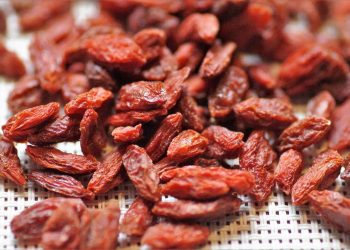Did you know that the food you eat can have a direct impact on your eye health? It’s true! Our diets play a critical role in maintaining not just our overall health, but specifically the health of our eyes. With the prevalence of screen time today, it’s more important than ever to pay attention to what we’re putting on our plates. So, let’s dive into five incredible foods that can help boost your eye health naturally.
Contents
1. Carrots: The Classic Vision Booster
We’ve all heard the saying, “Eat your carrots for better eyesight.” But is there any truth to it? Well, yes! Carrots are rich in beta-carotene, which our bodies convert into vitamin A. This vitamin is crucial for maintaining good vision, especially in low light.
Benefits
- Vision Support: Vitamin A helps prevent night blindness and keeps your eyes moist.
- Antioxidant Properties: Carrots are also packed with antioxidants that can help combat oxidative stress in the eyes.
Considerations
But let’s be real: you won’t magically gain night vision by munching on a carrot stick or two. Balance is key. While carrots are excellent, they should be part of a varied diet. Too much carrot can lead to carotenemia, a harmless condition that turns your skin a bit orange!
Simple Ways to Include Carrots
- Raw: Sliced in salads or as a snack with hummus.
- Cooked: Roasted with herbs or blended into soups.
2. Leafy Greens: A Nutritional Powerhouse
Kale, spinach, and collard greens are more than just trendy salad ingredients. They’re packed with lutein and zeaxanthin, two antioxidants that accumulate in the retina and may help protect against age-related macular degeneration (AMD) and cataracts.
Benefits
- Protective Effects: Studies suggest that a diet rich in these nutrients may reduce the risk of developing AMD by up to 40% (Age-Related Eye Disease Study Research Group, 2001).
- Vitamin C: Leafy greens are also a good source of vitamin C, which further contributes to eye health.
Considerations
While greens are fantastic, they can be hard to incorporate for some. If you’re not a salad person, consider blending them into smoothies or adding them to stir-fries.
Ways to Eat More Greens
- Smoothies: Blend spinach with banana and almond milk for a delicious, nutrient-packed drink.
- Stir-fries: Toss kale or collard greens into your favorite stir-fry for a health boost.
3. Fatty Fish: The Omega-3 Champion
Fatty fish like salmon, mackerel, and sardines are not just delicious; they’re also a powerhouse when it comes to eye health. They contain omega-3 fatty acids, which are essential for maintaining the health of the retina.
Benefits
- Dry Eye Relief: Omega-3s can help alleviate dry eyes by improving the eye’s lipid layer, which helps retain moisture.
- AMD Prevention: Research indicates that omega-3 fatty acids may lower the risk of AMD (Seddon et al., 1996).
Considerations
If you’re not a fish lover, you might be concerned about the mercury levels in some fish. Opt for wild-caught varieties when possible, and limit consumption of larger fish like swordfish.
Easy Ways to Incorporate Fish
- Grilled or Baked: Season your fish with herbs and lemon for a simple, healthy meal.
- Canned Fish: Mix canned sardines with mustard and spread on whole-grain toast for a quick lunch.
4. Eggs: The Nutrient-Dense Delight
Eggs are not just for breakfast; they’re a fantastic source of nutrients that can benefit your eyes. They’re rich in lutein, zeaxanthin, and vitamin A, making them a trifecta for eye health.
Benefits
- Nutrient Absorption: The fats in eggs can help your body absorb the lutein and zeaxanthin more effectively.
- Versatility: Eggs can be prepared in numerous ways, making them a versatile addition to your diet.
Considerations
While eggs are nutrient-rich, they’re also high in cholesterol. For most people, moderate consumption is fine, but if you have specific health concerns, it’s best to consult your doctor.
Ways to Enjoy Eggs
- Boiled: A quick, portable snack.
- Scrambled or Omelets: Add your favorite veggies for an eye-healthy meal.
5. Berries: The Sweet Antioxidant Boost
Berries, including blueberries, strawberries, and blackberries, are packed with antioxidants that can be beneficial for your eyes. They contain vitamin C and other phytochemicals that help combat oxidative stress.
Benefits
- Cell Protection: The antioxidants in berries can help protect the retina and may reduce the risk of cataracts.
- Anti-Inflammatory Properties: Berries can also help reduce inflammation, which is linked to various eye diseases.
Considerations
While berries are generally healthy, they can be high in sugar if consumed in excess. Moderation is key, especially for those watching their sugar intake.
Delicious Ways to Incorporate Berries
- Smoothies: Blend berries with yogurt for a refreshing drink.
- Toppings: Use them as toppings for oatmeal or yogurt for a sweet treat.
FAQs
1. Can I improve my eyesight by eating these foods?
While these foods can support eye health, they won’t necessarily improve your eyesight if you already have vision problems. They can help maintain health and potentially reduce the risk of eye diseases.
2. How often should I eat these foods for optimal eye health?
Incorporating a variety of these foods into your daily diet is beneficial. Aim for at least a few servings of fruits and vegetables, including the ones mentioned, each week.
3. Are there any side effects to eating too many of these foods?
Generally, these foods are safe in moderation. However, excessive consumption of certain foods—like carrots—can lead to carotenemia, and high mercury fish intake can pose a risk.
4. What if I don’t like any of these foods?
If you’re not a fan of these specific foods, consider other alternatives rich in the same nutrients. For example, nuts and seeds for omega-3s, or orange and yellow fruits for vitamin A.
Conclusion
Incorporating these five foods into your diet can significantly contribute to your eye health. They’re not just good for your vision but also delicious and versatile, making it easy to enjoy them in various meals. Remember, a balanced diet is essential for maintaining overall health, including your eyes.
So, the next time you sit down for a meal, think about how you can include some of these eye-friendly foods. Your eyes will thank you for it!
Disclaimer: This article is for educational purposes only and is not a substitute for professional medical advice. Always consult a qualified healthcare provider before making changes to your health routine.
References
-
Age-Related Eye Disease Study Research Group. (2001). A randomized, placebo-controlled, clinical trial of high-dose supplementation with vitamins C and E, beta carotene, and zinc for age-related macular degeneration and vision loss: AREDS Report No. 8. Archives of Ophthalmology, 119(10), 1417-1436. https://doi.org/10.1001/archopht.119.10.1417
-
Seddon, J. M., Ajani, U. A., Sperduto, R. D., & Hiller, R. (1996). Dietary carotenoids, vitamins A, C, and E, and advanced age-related macular degeneration. Journal of the American Medical Association, 276(18), 1419-1424. https://doi.org/10.1001/jama.276.18.1419
-
Mayo Clinic. (2021). Eye health: Tips for maintaining good vision. https://www.mayoclinic.org/healthy-lifestyle/adult-health/in-depth/eye-health/art-20046092
-
Harvard Health Publishing. (2020). The role of nutrition in eye health. https://www.health.harvard.edu/eye-health/the-role-of-nutrition-in-eye-health
Get Your FREE Natural Health Guide!
Subscribe now and receive our exclusive ebook packed with natural health tips, practical wellness advice, and easy lifestyle changes — delivered straight to your inbox.














